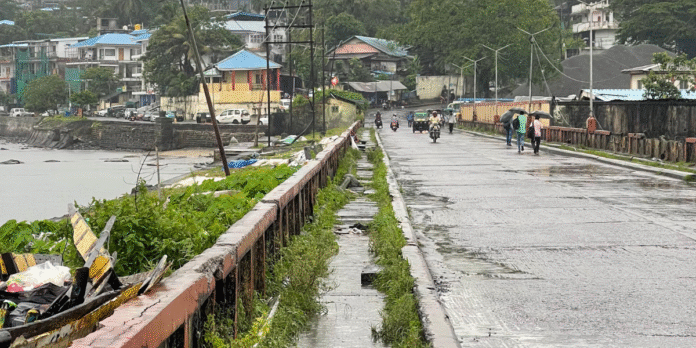A formal plea has been submitted to the Lieutenant Governor of the Andaman and Nicobar Islands, seeking urgent intervention to establish a lightweight battery-operated shuttle service between Chatham Jetty and the Chatham Police Station bus stop. The request, put forth by a local representative on behalf of vulnerable communities, aims to address an intensifying mobility crisis caused by the continuing restrictions on Chatham Bridge.
According to the petition, hundreds of senior citizens, pregnant women, and patients with medical needs are being severely impacted due to the lack of permitted transport options on the weakened Chatham Bridge. The current restrictions under the Motor Vehicles Act, 1988, prohibit vehicles over 20 metric tonnes and limit access strictly to those under 5 metric tonnes, imposing a 30 km/h speed limit and allowing only one vehicle to cross at a time. These measures, introduced after safety inspections found the bridge structurally deficient, will remain until a final review by IIT Madras is complete.
In the absence of public vehicles that comply with the weight limit, residents needing to move between the Chatham Jetty and the nearest bus stop, a stretch of approximately 0.5 to 1 kilometre, are forced to walk under harsh weather conditions, often carrying personal belongings or medical equipment. The concern is especially acute for those already facing health challenges or mobility limitations.
To bridge this transport gap without compromising safety directives, the proposal recommends deploying compact, battery-operated micro-shuttles weighing below the 5-metric-tonne threshold. These eco-friendly electric vehicles would operate exclusively between Chatham Jetty and the Chatham Police Station Bus Stop junction, equipped with essential accessibility features like wheelchair ramps and reserved seating for the elderly and infirm.
The petitioner has suggested a pilot deployment of 8 to 10 such shuttles, which would run on a symbolic fare of ₹5-10 and offer free rides to medical patients. The service could be made more responsive through a dedicated helpline, allowing for on-demand operation for those unable to wait at public stops.
The proposed intervention comes as a practical response to an infrastructural bottleneck that has persisted for months. In previous coverage by The Wave Andaman, the Chatham Bridge’s deteriorating condition has been extensively documented, including its limited vehicular access and delayed repair timelines. The call for a battery shuttle service echoes growing local frustration over the lack of alternatives, especially for daily commuters and emergency travelers.
Stakeholders argue that the solution offers a rare convergence of administrative feasibility, environmental sustainability, and human welfare. By adhering to existing safety guidelines while restoring basic mobility, the shuttle service could serve as a template for short-distance transport in restricted zones.
In view of the volume of affected individuals, estimated to be between 200 and 500 daily, the request also seeks to designate priority boarding bays at both ends of the proposed route. The locations identified are Chatham Jetty and the junction near Chatham Police Station, which already see high footfall from ferry passengers and commuters.
If implemented, the service could significantly ease movement for vulnerable populations while the bridge remains under restricted use. Officials from the Transport Department have not yet responded to the request, but public attention around the issue is rising. The need for a temporary yet efficient mobility solution continues to dominate local discourse as the region awaits structural upgrades on the Chatham Bridge.
With no clarity yet on when full vehicle access might be restored, islanders are pinning hopes on immediate micro-level interventions like the proposed shuttle, which could make daily life less punishing for those already on the margins of mobility.





